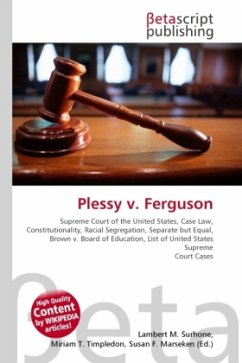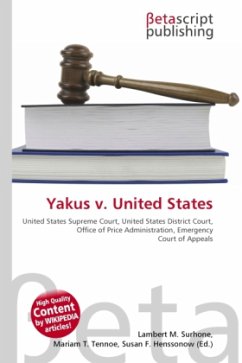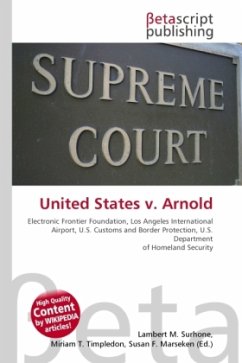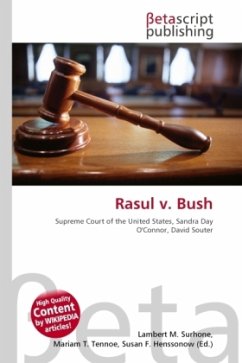High Quality Content by WIKIPEDIA articles! Wainwright v. Greenfield, 474 U.S. 284 (1986), is a case in which the United States Supreme Court reversed the lower court's finding and overturned the petitioner's conviction, on the grounds that it was fundamentally unfair for the prosecutor to comment during the court proceedings on the petitioner's silence invoked as a result of a Miranda warning.The respondent entered a plea of not guilty by reason of insanity to a charge of sexual battery. At his trial in the Circuit Court for Sarasota County, Florida, the prosecutor argued that respondent's silence after receiving Miranda warnings was evidence of his sanity. The question presented is whether such use of a defendant's silence violates the Due Process Clause of the Fourteenth Amendment as construed in Doyle v. Ohio (1976).
Bitte wählen Sie Ihr Anliegen aus.
Rechnungen
Retourenschein anfordern
Bestellstatus
Storno








